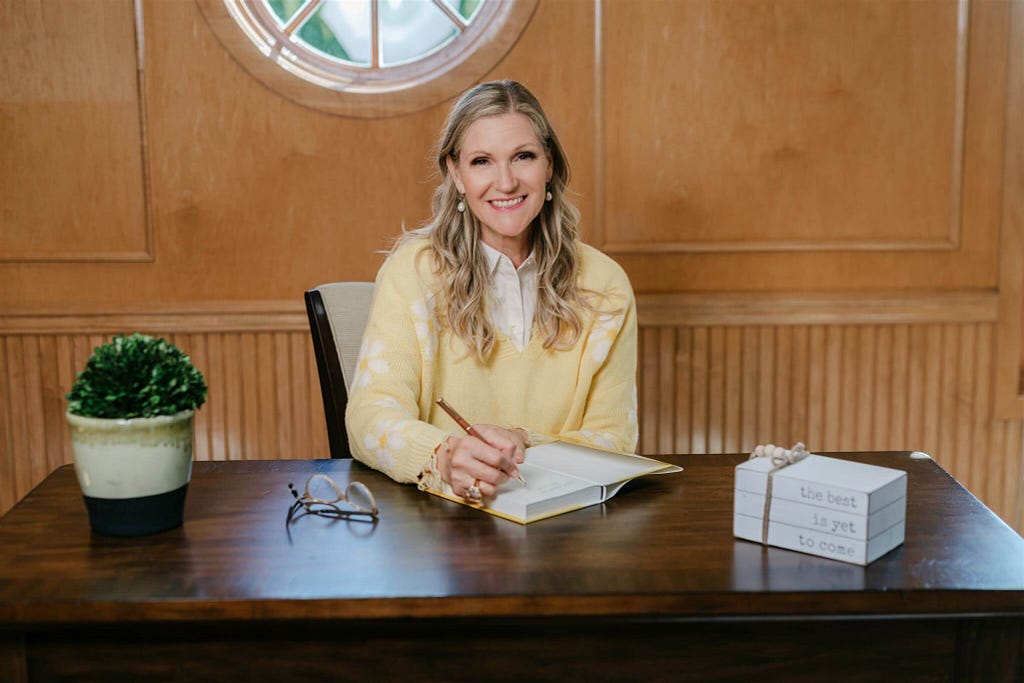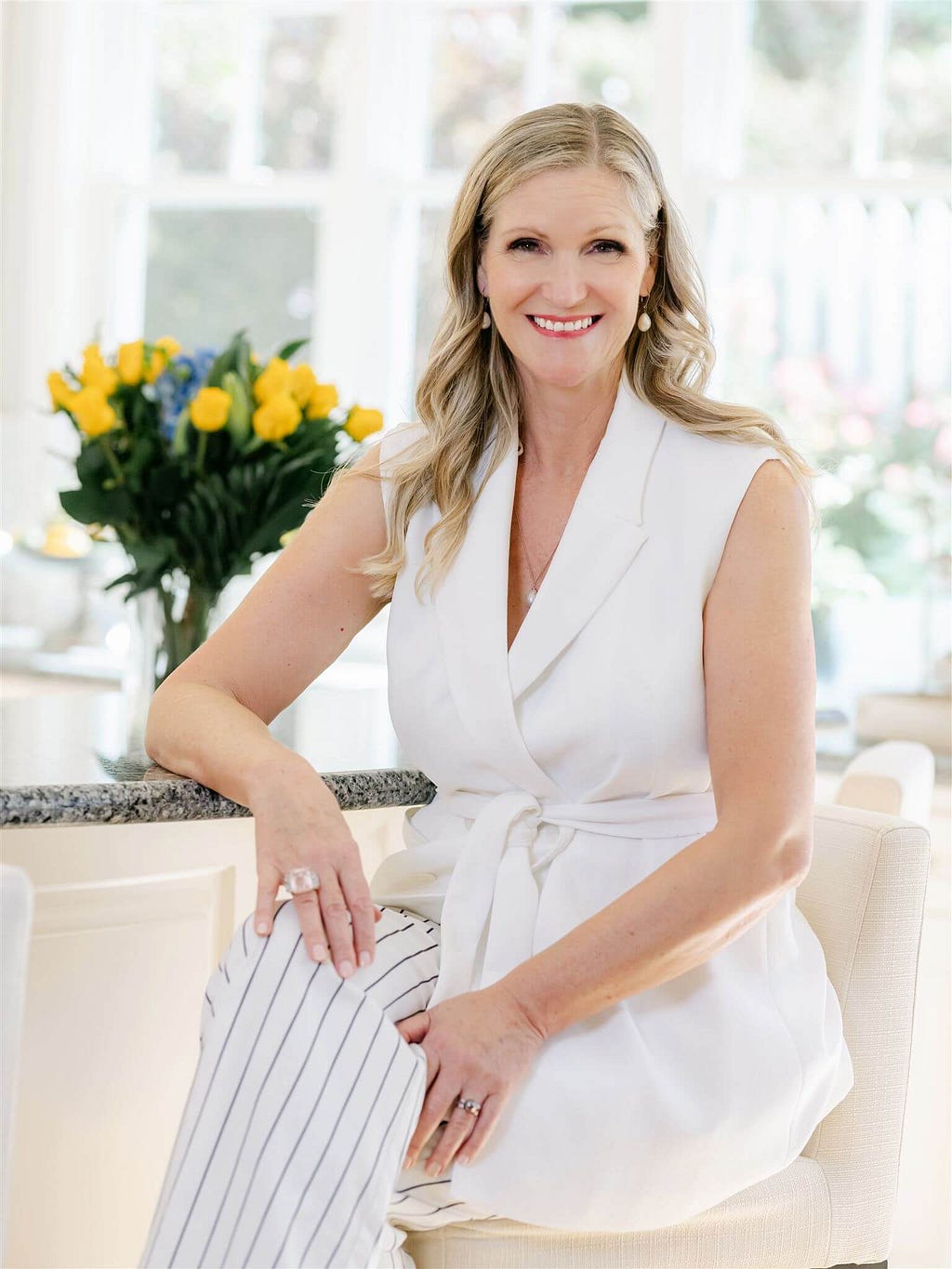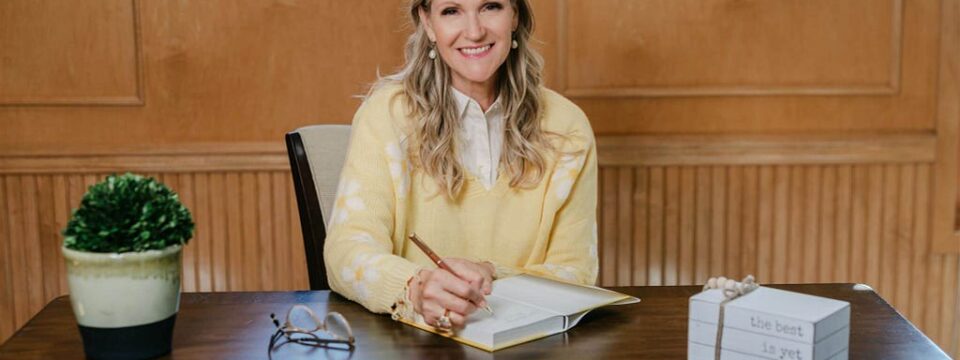
It’s Okay to Ask for Help: Leaning on others doesn’t mean you’re weak. Building a strong support network can make a world of difference. I wish we had been better organized in getting our team of helpers and more clearly articulated what we needed on our journey. I found that often when people asked what we needed, I went blank. Looking back, people were trying to help, but I wasn’t clear on how or what we needed at any given moment.
As part of my series about “authors who are making an important social impact”, I had the pleasure of interviewing Phillipa Leseberg.
Phillipa Leseberg is a Kiwi-American adventurer, dolphin & whale swimmer, advocate for juicing and organic food, and debut author. As her husband battled cancer, she began to journal daily, a practice that was both cathartic and purposeful. The words she penned during those moments of vulnerability became the foundation of her debut book, “His Name is Eric.” Phillipa shares her deeply personal story, inspiring readers to seek, question, and advocate for their own health. Based in Seattle, she lives a life filled with travel and adventure, frequently visiting her daughter and beloved pup in Hawai’i. Phillipa’s mission is simple: to bring awareness to what she calls “advanced” methods of healing and to encourage others to take ownership of their health decisions.
Can you tell us a bit about your childhood backstory?
I was born in the South Island of New Zealand and lived there until high school, and moved to the North Island, where I lived through my high school/university years and into my first ten years of my working life, (a high school teacher and then international air express global sales.) I was one of seven, exactly in the middle, with two sisters and a brother older and two sisters and a brother younger. I was a good kid, not getting up to too much trouble, and heavily involved in sports…basketball and netball. We were brought up to have inquiring minds when it came to healthy eating and general health awareness (something that was a bit unusual in those days).
When you were younger, was there a book that you read that inspired you to take action or changed your life? Can you share a story about that?
A pretty influential book for me was, “Living in the Light” by Shakti Gowain, a transformative self-help book that encourages readers to embrace their inner wisdom and intuition to create a fulfilling life. The book introduces the concept of the “light” as our inner guidance, which can lead us to a more authentic and purposeful existence, emphasizing the importance of self-awareness, self-acceptance, and creative visualization. Overall, “Living in the Light” aims to help individuals tap into our inner potential and live a life with more love, joy, and abundance.
It has been said that our mistakes can be our greatest teachers. Can you share a story about the funniest mistake you made when you were first starting? Can you tell us what lesson you learned from that?
When I was first thinking of writing a book, I mistakenly thought that I could take my journals and that would be THE book. Come to find out that it would take me years to re-write the journals into interesting stories for the book. The lesson: a “journal” does not necessarily make a book!
Can you describe how you aim to make a significant social impact with your book?
By sharing my deeply personal journey in “His Name is Eric,” I am hoping to make a social impact in several ways:
- Raising Awareness: My story brings attention to the challenges faced by individuals and families dealing with severe health conditions, highlighting the emotional and financial struggles involved.
- Inspiring Resilience: By sharing my fight for Eric’s survival, I offer hope and inspiration to others who may be facing similar battles, showing them that resilience and determination can make a difference.
- Advocating for Alternative Treatments: Our exploration of alternative treatments beyond conventional medicine opens up discussions about the importance of holistic and integrative approaches to health and healing.
- Fostering Empathy and Compassion: Readers gain a deeper understanding of what it means to support a loved one through a life-threatening illness, fostering greater empathy and compassion in society.
- Encouraging Journaling and Emotional Expression: I hope that my experience with journaling as a cathartic and purposeful practice encourages others to explore writing as a way to process their emotions and document their own journeys.
Can you share with us the most interesting story that you shared in your book?
During a particularly challenging part of our journey, soon after discovering that traditional treatments had failed Eric, we traveled to an extraordinary alternative clinic in Rosarito, Mexico. It was an incredibly difficult time, as the U.S. medical professionals had given Eric only six weeks to live. Desperate for a path to help save Eric’s life, we sought alternative treatments to save his life. Ironically, I found solace in an unexpected friend — a little hummingbird I named Cerise. I visited her in the hibiscus hedge almost every day. This magnificent wee bird brought me comfort and strength during some of my toughest moments.
What was the “aha moment” or series of events that made you decide to bring your message to the greater world? Can you share a story about that?
With “His Name is Eric,” an “aha moment” or series of events that encouraged me to bring the message to the world stemmed from the profound realization that conventional medicine did not have all the answers for my husband’s health predicament. We had literally come to the end of the road.
- Facing Conventional Medicine’s Limits: When we were told that traditional medical options had been exhausted, we sought alternative treatments. This journey sparked the initial desire to document and share my journey. My intention was to chronicle the ways we helped save Eric’s life, so that we could share that later with others. Sadly, the outcome wasn’t what we hoped for.
- Journaling as a Lifeline: As I began journaling to capture the daily efforts to save Eric’s life, I found catharsis and purpose in writing. The power of those words and the therapeutic nature of this practice illuminated the potential impact my story could have on others.
- Breakthroughs and Hope: Witnessing any significant improvements in Eric’s condition through alternative treatments underscored the importance of sharing these experiences. Seeing hope where there seemed to be none solidified my commitment to bring this message to a wider audience.
- Community and Support: The support and encouragement from others who read my initial writings or heard our story were a strong motivator. Realizing that our story resonated and helped others was the ultimate catalyst to publish my memoir.
Without sharing specific names, can you tell us a story about a particular individual who was impacted or helped by your cause?
A long-time member of our Seattle friend circle, who was facing her own cancer journey, showed incredible support for Eric. Despite her own struggles, she was always there for him, asking, “Where are you right now? What do you need?” She guided us on what to ask the oncologist during Eric’s initial diagnosis and accompanied us to his first appointment. As Eric’s condition worsened, she brought not only supplies but also hugs, providing comfort in our most challenging times. Even after moving to the East Coast, she stayed connected through late-night calls and texts with Eric when no one else was awake. She shared her experiences at Sanoviv in Mexico and gave us the confidence to head there as soon as we came to the end of the road with options in the U.S. Remarkably, she was with us, by Eric’s side, when he took his final breath.

Are there three things the community/society/politicians can do to help you address the root of the problem you are trying to solve?
1. Promote and Fund Integrative Healthcare: Politicians and policymakers can advocate for and allocate funding to research and support integrative healthcare practices. This includes combining conventional medicine with alternative treatments to provide holistic care. By recognizing and validating the benefits of alternative therapies, patients can have more options and better support systems.
2. Increase Awareness and Education: Society and communities can work together to raise awareness about the limitations of conventional treatments and the potential benefits of alternative medicine. Educational campaigns, community workshops, and informational sessions can help people make informed decisions about their healthcare options and encourage them to explore holistic approaches.
3. Support Caregiver Networks: Politicians and community leaders can develop and support programs that provide resources and assistance to caregivers. This includes mental health support, financial aid, and respite care. Recognizing the immense burden on caregivers and offering them the necessary tools and support can significantly improve the overall care experience for patients and their families.
How do you define “Leadership”? Can you explain what you mean or give an example?
When I think of leadership, I think of a leader who, during a crisis, stays calm and focused, communicates clearly, and rallies the team with a plan that instills hope and direction. They not only address the immediate issues but also inspire confidence and resilience, making everyone feel valued and part of the solution. In our experience, there was no one who stepped into the leadership role, and I realized early on that that person would have to be me! I felt like I had to step into a project management role to manage the myriad of elements of Eric’s health journey…at least until we left for Mexico, where we finally experienced a group of medical and supporting professionals that took over that role.
What are your “5 things I wish someone told me when I first started” and why? Please share a story or example for each.
1. Advocate for yourself and your person. No one is going to step in and take a leadership role on your cancer journey and you have to speak up when something doesn’t look and feel right. For example, if the doctors weren’t answering our questions to our satisfaction, we learned to push harder to get an answer that made sense.
2. The medical professionals simply do not have all the answers. Their treatments in the U.S. are based on symptom-management, versus healing their patients. It’s all a bit hit and miss whether any actual healing takes place. I noticed on our journey that there was a lot of guesswork going on. For example, the doctors seemed relieved at the 3-month mark when the treatments seemed to be working, but surprised when the same chemo cocktail didn’t work the second time around.
3. INSIST on having complementary/alternative treatments along the way. What if 2 million people every year say “NO, I don’t just want to be offered chemo, radiation and surgery. What else do you have?” In our case, Eric’s oncologist laughed at me when I asked for high dose vitamin C, hyperbaric chamber treatments, etc.
4. Find Moments of Joy: Even during the toughest times, seek out the small joys and victories. They help to sustain and give you strength. For example, I would drive Eric to the marina in Kirkland and we would sit and watch people going about their day…and/or stay and watch the sun go down. We would find ways to giggle and laugh, even during the craziness of the journey.
5. It’s Okay to Ask for Help: Leaning on others doesn’t mean you’re weak. Building a strong support network can make a world of difference. I wish we had been better organized in getting our team of helpers and more clearly articulated what we needed on our journey. I found that often when people asked what we needed, I went blank. Looking back, people were trying to help, but I wasn’t clear on how or what we needed at any given moment.
Can you please give us your favorite “Life Lesson Quote”? Can you share how that was relevant to you in your life?
A quote by Maya Angelou: “You may encounter many defeats, but you must not be defeated. In fact, it may be necessary to encounter the defeats, so you can know who you are, what you can rise from, how you can still come out of it.” Eric was given an expiry date from the medical professionals in Seattle and together we rallied and left the country to try to save his life.
Is there a person in the world, or in the US with whom you would like to have a private breakfast or lunch with, and why?
100% Tony Robbins. About the same time I was writing, “His Name is Eric”, he wrote a book called, “Life Force.” Ironically, it’s almost as if he takes my main points, frustrations, and outrage and offers ground-breaking research and solutions, working closely with professionals from all over the country and the world. His message amplifies EXACTLY what I am saying in the book. Early diagnosis and testing, prevention and awareness of ALL THE TOOLS IN THE medical and alternative tool kit.
How can our readers further follow your work online?
They can regularly visit https://phillipaleseberg.com/ for updates, recorded and upcoming events, resources and blogs.
Social Impact Authors: How & Why Author Phillipa Leseberg Is Helping To Change Our World was originally published in Authority Magazine on Medium, where people are continuing the conversation by highlighting and responding to this story.
